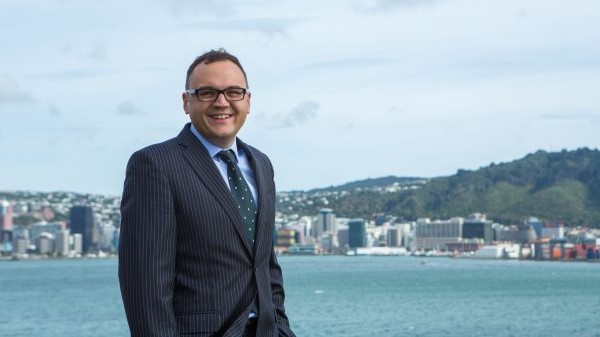World in sore need of more optimism and can-do problem solvers

Optimism about the world’s medium to long-term future is in quite short supply at present, be it climate change and the wider world’s inability to lower emissions, or the economic storm clouds that continue to gather.
What I’ve admired about the road transport industry, however, is a general optimism to perform for customers and get their needs met, often in the most trying of circumstances that would send most of us mad! We are going to need to hang onto that optimism and the desire to keep doing things better in the months ahead.
Next week we will share with you the results of our industry cost survey. It only closed this week and we are tallying the results. We’ve had more than 320 responses from across the industry and across the country. We know from our industry cost index that costs are increasing. The survey will tell us in real time where those costs are falling.
In the meantime, and without wanting to be negative, I thought I’d share with you some concerning stats around the recently leaked review of Waka Kotahi NZ Transport Agency which was obtained by RNZ.
We know all too well the challenges trucking operators and their drivers face with road quality, speed, and accidents. That’s before we even get to the need for strong regulators to ensure we have a level playing field in our industry. Road to Zero, of course, has laudable goals that we would sign up for. Where we take issue is how we reduce deaths and serious injuries on our roads.
The review of Waka Kotahi has shown that, since 2018, the agency has installed less than a fifth of the road safety barriers that are due to be in place by 2024. There’s still time, but come on, why the delay? The road to zero harm could stretch off far into the distance.
Oliver Hartwich, executive director of The New Zealand Initiative, says that the lack of performance by Waka Kotahi has been coupled with a big growth in the transport bureaucracy. As of June 2021, Waka Kotahi employed 2081 staff. In 2018, that figure was only 1372. So, 709 more staff in four years. But we know that the half yearly road toll is now the highest since 2018.
If we were talking about hiring staff who could help road users to be more compliant and safer, there could be an argument to employ more of them. HR workers went from 57 to 122 full-time equivalents; managers went from 214 to the eye-watering total of 456; accountants from 44 to 66; and admin staff from 207 to 485. And let us not forget the communications team which has mushroomed from 32 to 88. As Dr Hartwich notes, none of the above will install a bollard or put up a road sign or fix a crappy highway. Nobody says, “This road needs fixing. Quick, call an accountant or PR person!”
Of course, we know that after ongoing revelations of non-performance, the political response is to employ even more staff at the agency and charge the transport industry to do so. Transporting New Zealand has consistently argued that a more co-operative compliance relationship between industry and regulatory would be more effective than simply adding boffins in Wellington without improving safety outcomes.
In May this year, in our submission to Waka Kotahi on its proposal seeking an additional $100 million per year to its current annual spend of $185.5 million, we expressed concern at the vagueness and lack of clear connection between the additional investment of $100 million and the outcomes this will lead to in terms of a reduction in deaths and serious injuries. Bearing in mind that the investment level from the National Land Transport Fund (NLTF) for the NZ Police contribution to the Road Safety Partnership Programme is in the order of $400 million per year for the three-year period 2021 to 2024, we reckon that Waka Kotahi should clearly demonstrate that the additional $100 million it is seeking is a good investment compared with other opportunities available.
Dr Hartwich further states that Waka Kotahi is symptomatic of a much wider problem in New Zealand. Faced with a serious problem, government sets an ambitious long-term goal. It then launches a massive public relations campaign (Road to Zero marketing cost will be $15 million over three years) and increases the number of officials, but fails on actual delivery.
It’s of concern to us as the peak body for the transport industry, that Waka Kotahi has become all about meaningless meetings and ‘relationships’. They don’t want constructive suggestions or wins to improve safety outcomes. It’s now all about ‘engagement’ rather than the technical capability of their team.
We have spent our time this year giving feedback to endless reviews, the results of which are shared only when leaked. As an industry that’s under the pump, we are desperate to make life easier and safer for our members. What we know is that more bureaucracy and flashy ad campaigns don’t do that! We refuse to give up on the task, though, and will keep pressing for meaningful action from the bureaucracies to actually deliver on their promises.
By Nick Leggett, CEO Ia Ara Aotearoa Transporting New Zealand





